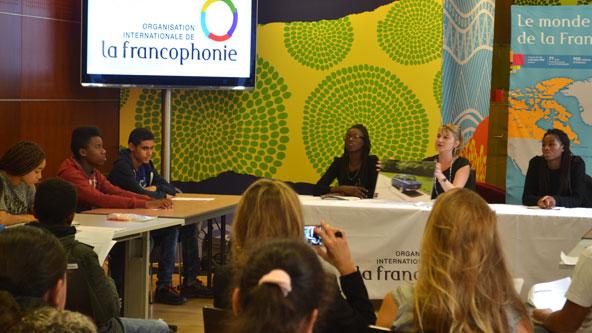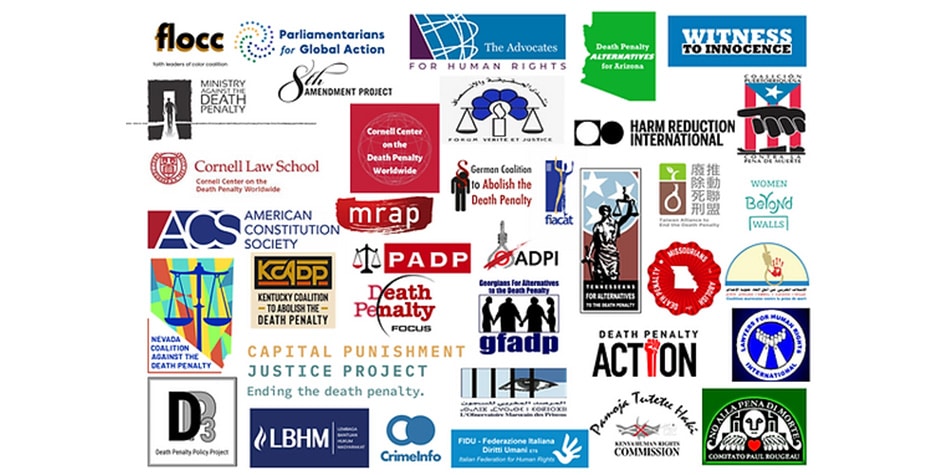
French youth event emboldens next abolitionist generation
Abolition
“When the judge told you that you were free, what exactly did you feel?”, a young student asked American native Curtis McCarty, wrongfully incarcerated on Oklahoma’s death row for over 20 years.
“It’s so good to be alive,” McCarty said when he started to recount his experience. His story based on “a perverse notion of justice” was a sobering and touching one. Suddenly, the death penalty, which for the students had previously been an academic mass of facts and vocabulary, turned into flesh and blood; nobody in the room was left unmoved or unconcerned.
Prior to McCarty’s talk, the 14 to 20-year-old high-school students from the Paris region and abroad who filled a lecture hall at the Conseil National des Barreaux (National Council of Lawyers – CNB) had received a brief introduction on capital punishment.
At the invitation of CNB, the International Organisation of Francophone countries, the French foreign affairs ministry and World Coalition member organisation ECPM, abolitionists explained the roles of different actors in the global fight to eradicate the death penalty: lawyers, diplomats, associations… and the youths themselves.
ECPM’s Education Officer Marianne Rossi then broke down how the death penalty is practiced around the world in an interactive manner that did more than just wake the students up – it engaged them.
What did they really know about the death penalty? Plenty, it seemed. Amongst the group of around 100 students, many were able to identify the countries that carry out the most executions, as well as distinguish between abolitionist states in law or in practice.
Even the neighbour-to-neighbour chatter among students focused on the subject at hand.
Mock trial and international negotiations
By lunchtime, the youths were ready to form three groups and take part in interactive workshops at the Francophonie headquarters.
World Coalition executive director Maria Donatelli was among the abolitionists who engaged the first group in a reflection on the methods young people may use to advance the abolitionist movement.
The second group, led by Rossi, acted out a trial in a nameless retentionist country that illustrated capital punishment’s arbitrary nature. When walking out of the room, the lesson that one student said she learned was that “the death penalty is far from fool-proof.”
The remaining students joined France’s Human Rights Ambassador Patrizianna Sparacino-Thiellay and took the roles of country representatives at UN talks on a resolution of universal abolition.
After a timid start, the negotiation became more alive when the “backdoor diplomacy” portion of the simulation started. Students were allowed about 30 minutes to try and convince each other either to vote for the abolitionist or retentionist resolution. A teenager representing Morocco tackled her counterpart acting for Iran: “You’re so focused on pleasing the big USA [and other retentionist countries] that you’re ignoring what your own religion teaches… peace!” she said.
Sparacino-Thiellay, ultimately leading the young representatives to adopting a country-specific moratorium, stated how she was “pleasantly surprised with their interest” in the simulation.
Foreign Affairs Minister Laurent Fabius and former Justice Minister Robert Badinter – who had the death penalty abolished in France in 1981 – welcomed the participants to the Foreign Affairs Ministry for a closing ceremony in the evening. Their speeches served to highlight the day’s lessons and contribute to the sense of urgency in death penalty abolition. The sea of young faces stood out in direct contrast to an older Badinter who admitted that “old age [gave him] a [different] perspective on an otherwise long struggle”.
The contrast, however, served as a beautiful, visual metaphor for the whole day: the continuing fight for abolition lies in the hands of the next generation.







